Westminster attack: Met faces lawsuit over PC Keith Palmer death
- Published
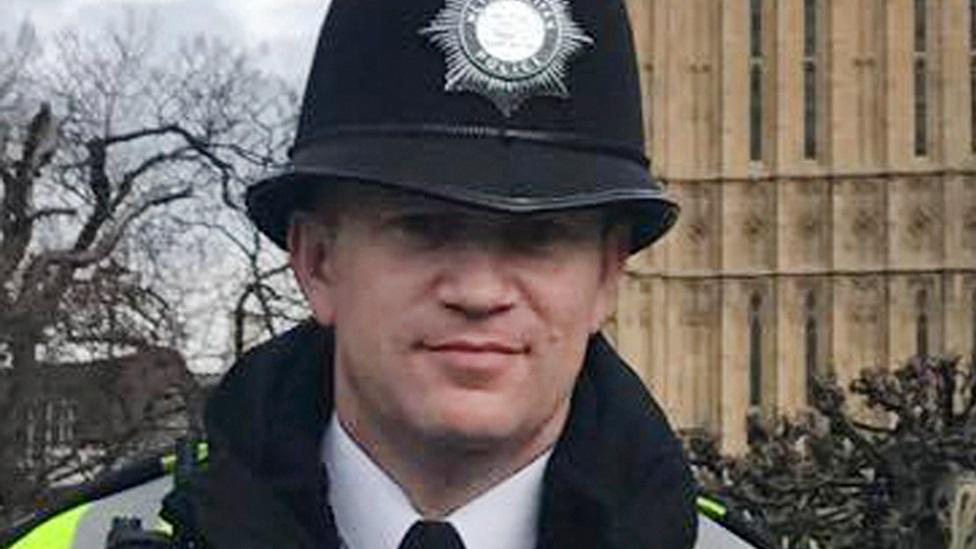
PC Keith Palmer was unarmed as he was attacked by Khalid Masood
The Met Police is facing legal action over the death of PC Keith Palmer during the Westminster terror attack.
Khalid Masood killed the unarmed officer after driving into pedestrians on Westminster Bridge on 22 March 2017.
In a statement the Met said it had received "a letter of claim in relation to the death of PC Palmer".
PC Palmer's widow Michelle confirmed that she was bringing the claim but said she felt "let down" by Scotland Yard for making it public.
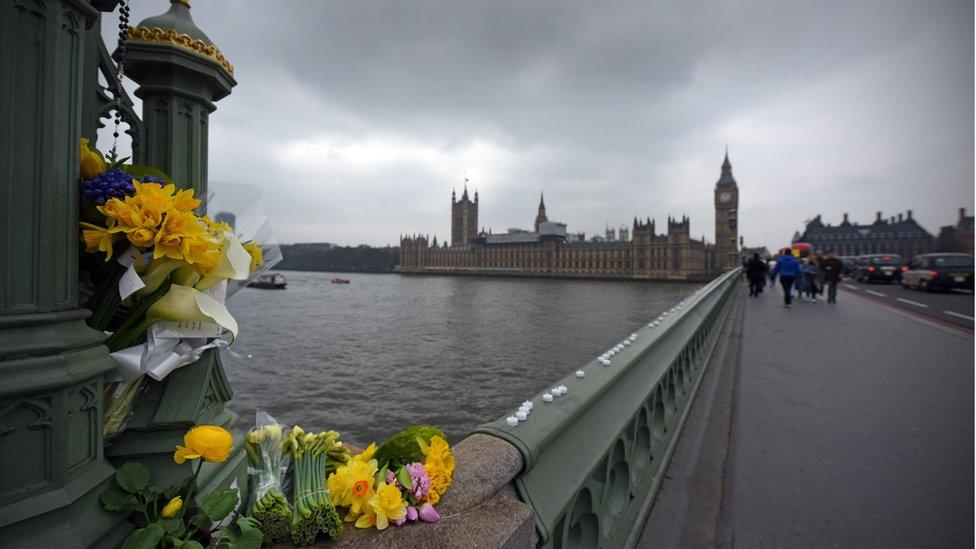
Flowers and candles were left on Westminster Bridge in tribute to the victims
She said: "It was always of paramount importance that this matter remained private, out of respect for me, my daughter and Keith.
"I am disappointed that the Met have made it public that a claim is being brought.
"Once more I feel disappointed and let down."
An inquest in October 2018 concluded his death may have been prevented had armed officers been nearby.
Mrs Palmer's lawyer told the inquest PC Palmer had just "a spray and a baton" to protect himself when he died.
PC Palmer, 48, was one of five people killed during the attack that lasted 82 seconds.

Clockwise from top left - PC Keith Palmer, Aysha Frade, Leslie Rhodes, Andreea Cristea and Kurt Cochran all lost their lives
Masood first ran over people on Westminster Bridge before stabbing the unarmed police officer to death.
Kurt Cochran, 54, Leslie Rhodes, 75, Aysha Frade, 44, and Andreea Cristea, 31, were also killed.
Masood was shot dead by armed officers during the attack.
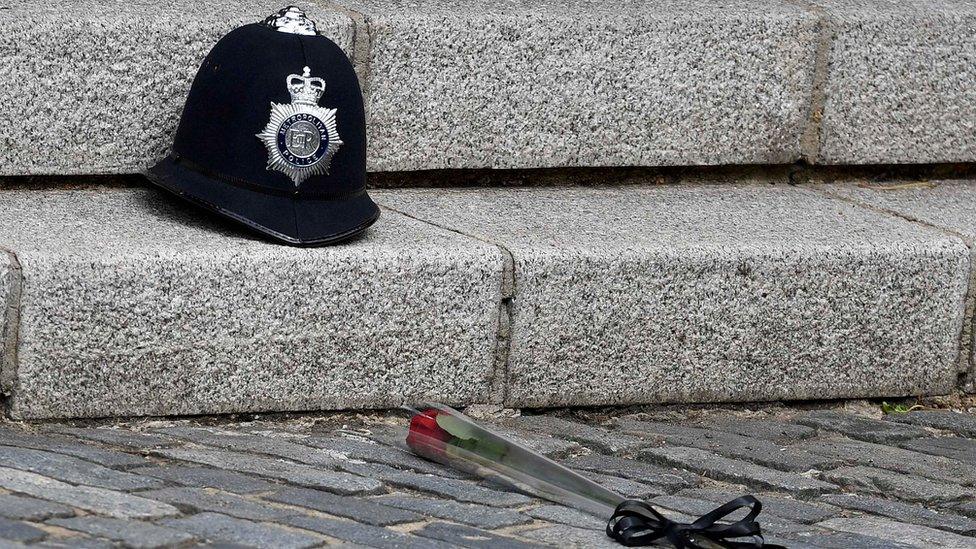
A single red rose was placed in front of PC Palmer's helmet in Westminster ahead of his funeral
Chief Coroner Mark Lucraft QC concluded that, had armed officers been stationed alongside him, they may have been able to prevent him suffering fatal injuries.
The inquest heard that the procedure of having armed officers on the gate had been changed to having roving patrols around the area instead.
Mr Lucraft said: "Due to shortcomings in the security system at New Palace Yard, including the supervision of those engaged in such duties, the armed officers were not aware of a requirement to remain in close proximity to the gates."
Speaking after the inquest, Assistant Commissioner Neil Basu apologised on behalf of the Met and said the lost chance to save a "brave and courageous officer" was unacceptable.
- Published14 September 2018
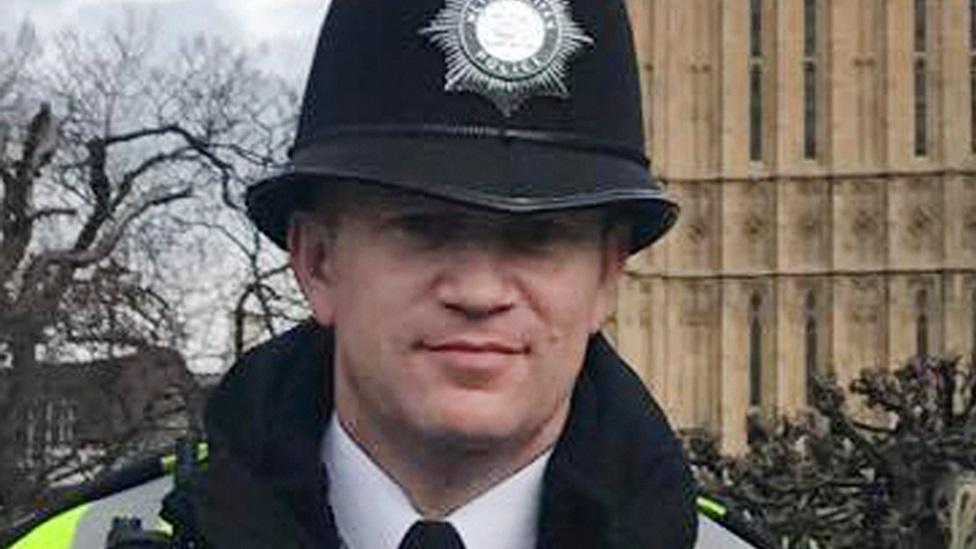
- Published11 September 2018
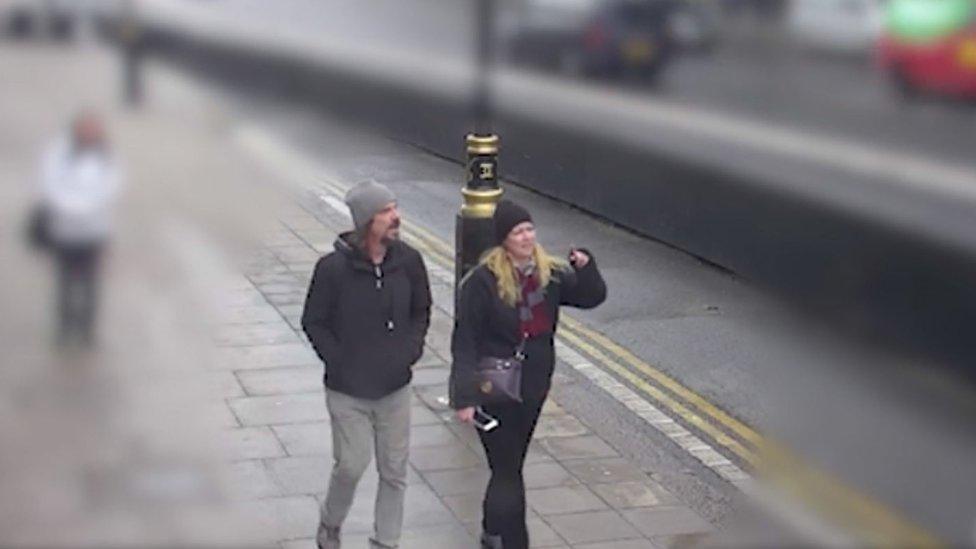
- Published12 September 2018

- Published10 September 2018
